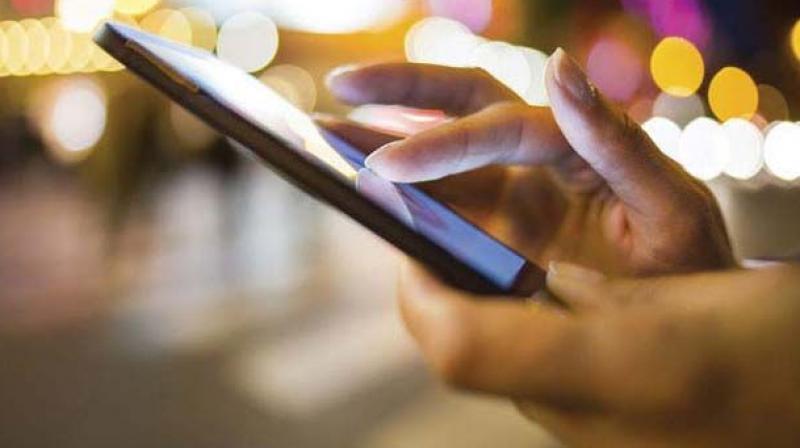Smartphone screen time tied to lower sleep quality

Using smartphones to measure how much time people spend looking at those phones confirms that more screentime is tied to poorer sleep, researchers say.
“This is the first study to directly measure actual screen time in natural environments and compare it to sleep quality,” said senior author Dr. Gregory M. Marcus of the University of California, San Francisco. “We did not rely on participant self-report, but rather utilized a mobile app that ran in the background and could capture exact screen time duration.”
The researchers analyzed data on 653 adults enrolled in the internet-based Health eHeart Study.
Participants’ smartphones were provided with a mobile application that recorded screen time, or the number of minutes in each hour that the phone screen was on. This app collected data continuously over a 30-day window.
Some participants self-reported their bedtime and sleeping period as well as personal demographics and medical information. Total screen time averaged 38.4 hours per 30 days, and average screen time per hour was 3.7 minutes, equivalent to one hour and 29 minutes per day, according to the report in the journal PLoS ONE.
“At first glance, that we on average spend about an hour and a half of our time interacting with our phone every day may not seem surprising,” Marcus told Reuters Health by email. “But in thinking about the fact that this is an hour and a half of uninterrupted time, that is a pretty significant part of our day.”
Younger people tended to have longer screen time. Screen time varied by age and race but was similar for people with the same socioeconomic background. As in previous studies of self-reported screen time, as screen time increased, sleep quality decreased, including taking more time to fall asleep and getting less time asleep overall.
“This is a lot better than the usual surveys where people estimate how much they use their phone,” said Michael Gradisar of Flinders University School of Psychology in Adelaide, Australia. “I was surprised that people are using their phones for one to two hours per day. I thought it would be more than that.”
Television, which also involves a screen but is not interactive, may not be linked to sleep in the same way, Gradisar told Reuters Health by email.
“More screen time right around participant-reported bedtime was particularly associated with longer sleep latency (or a longer time to fall asleep) and reduced sleep quality,” Marcus said. The light produced by smart phones might suppress production of melatonin, which is related to sleep, Marcus said.
“However, it is also possible that engrossing activities that result in stimulation, such as following the latest post on Facebook or a bothersome tweet, might be counter to productive sleep preparation,” he said.
But this study does not prove causality, as people with difficulty sleeping may spend more time on their phone as a result of their inability to sleep, he said. “We know that poor sleep leads to many health problems, and we are only now beginning to fully recognize the negative impact on the cardiovascular system,” Marcus said.
“Avoiding smart phone screens is almost certainly low risk,” he said. “Therefore, if an individual is having difficulty falling asleep or maintaining an adequate quality of sleep, I think our observations support a good trial of screen time avoidance to determine if it helps that person obtain a good night’s sleep.”

